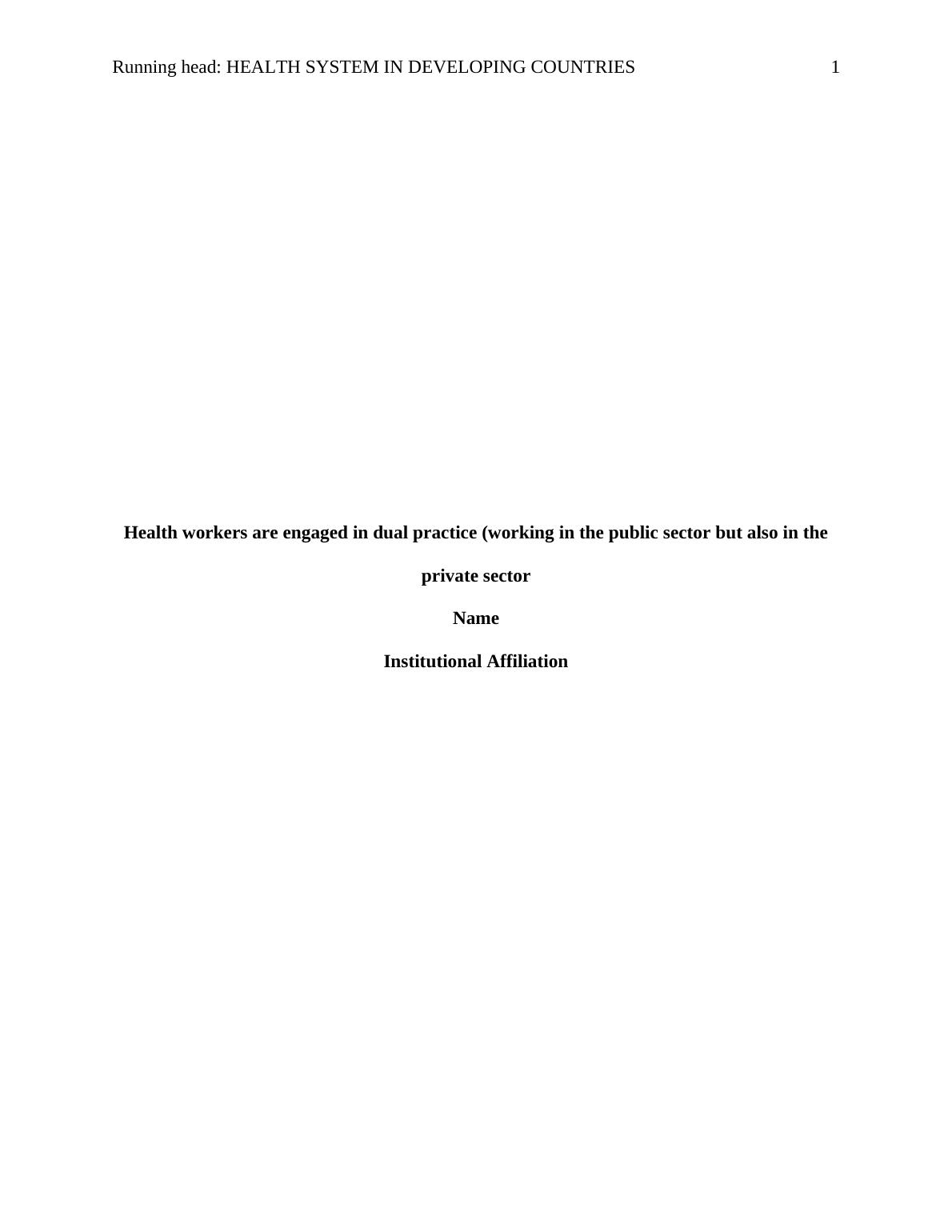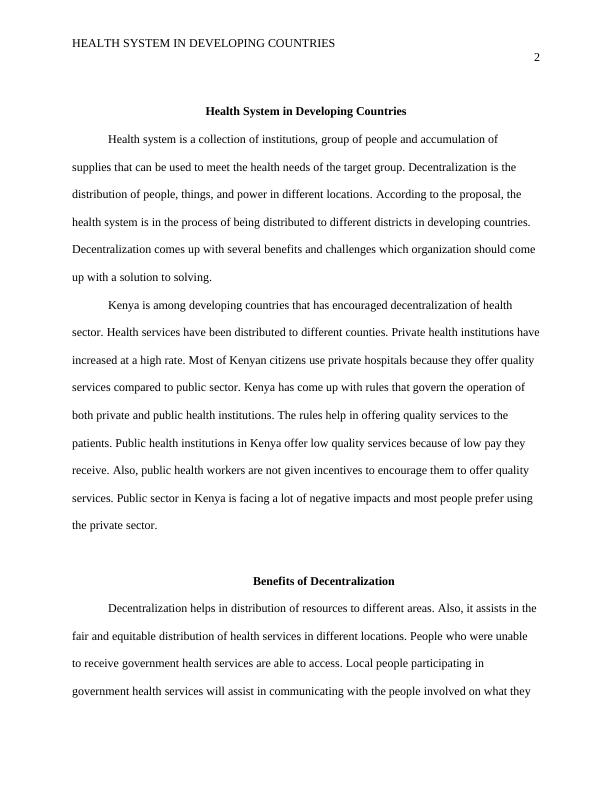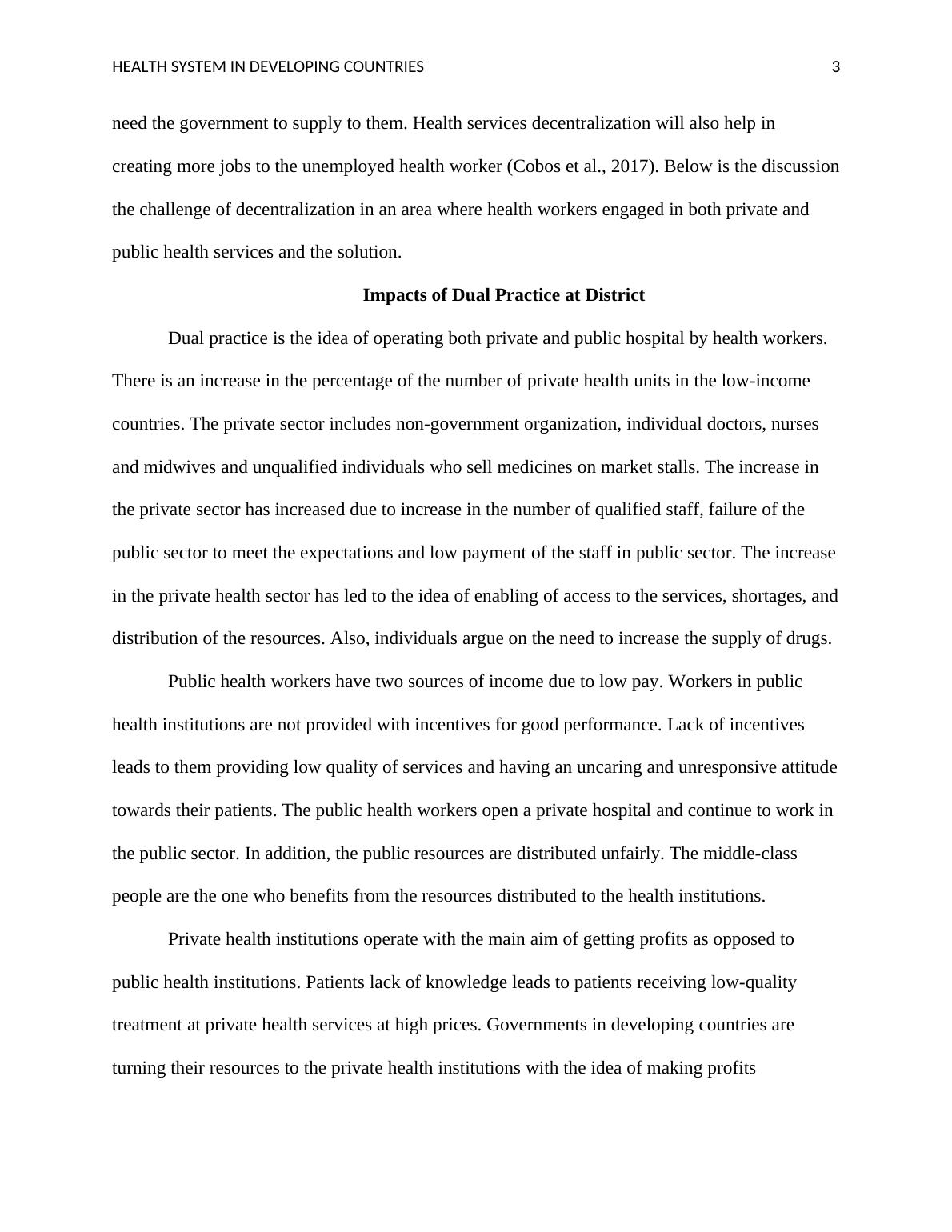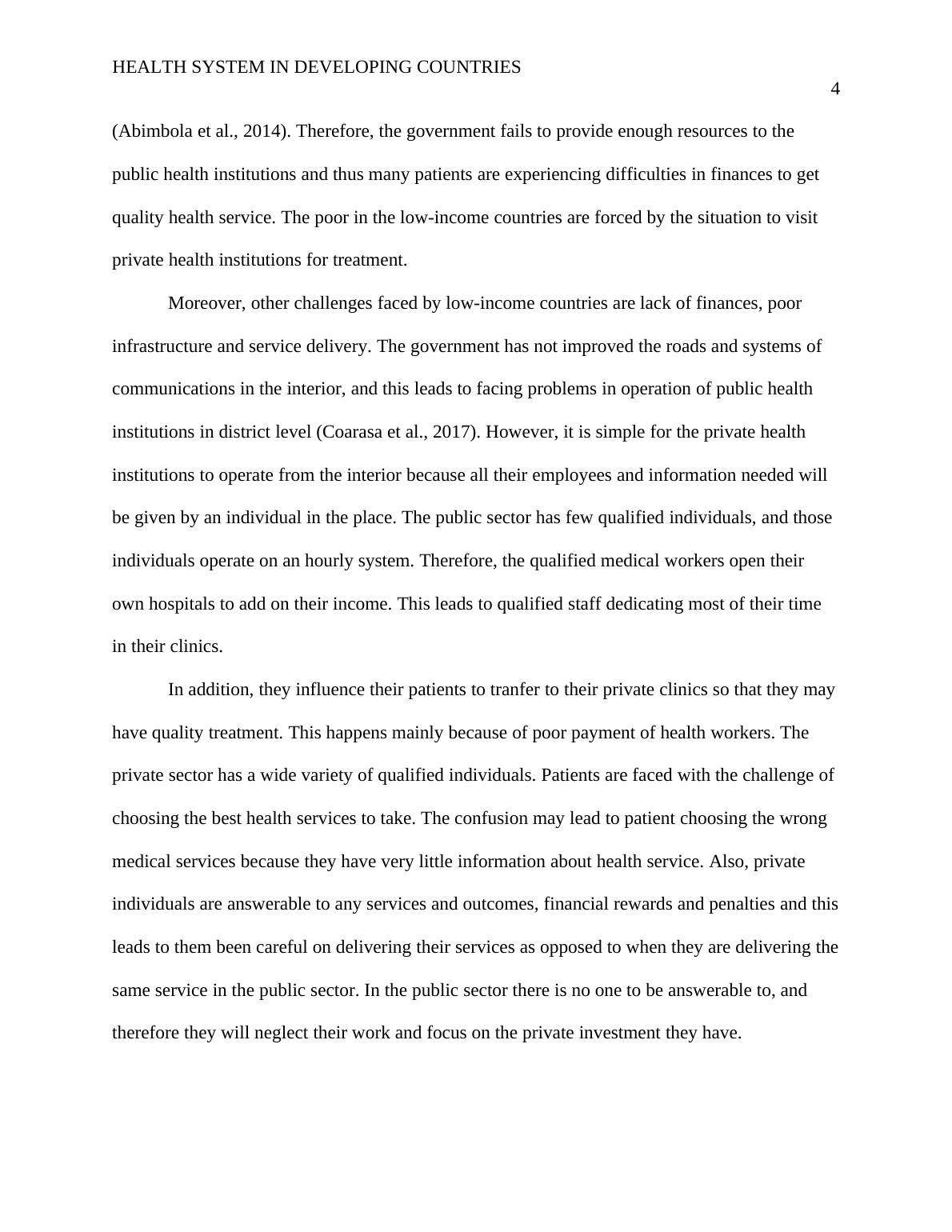Ask a question from expert
Assignment on Health System in Developing Countries
11 Pages3022 Words365 Views
Added on 2020-05-08
Assignment on Health System in Developing Countries
Added on 2020-05-08
BookmarkShareRelated Documents
Running head: HEALTH SYSTEM IN DEVELOPING COUNTRIES1Health workers are engaged in dual practice (working in the public sector but also in theprivate sector NameInstitutional Affiliation

HEALTH SYSTEM IN DEVELOPING COUNTRIES2Health System in Developing CountriesHealth system is a collection of institutions, group of people and accumulation of supplies that can be used to meet the health needs of the target group. Decentralization is the distribution of people, things, and power in different locations. According to the proposal, the health system is in the process of being distributed to different districts in developing countries. Decentralization comes up with several benefits and challenges which organization should come up with a solution to solving. Kenya is among developing countries that has encouraged decentralization of health sector. Health services have been distributed to different counties. Private health institutions haveincreased at a high rate. Most of Kenyan citizens use private hospitals because they offer quality services compared to public sector. Kenya has come up with rules that govern the operation of both private and public health institutions. The rules help in offering quality services to the patients. Public health institutions in Kenya offer low quality services because of low pay they receive. Also, public health workers are not given incentives to encourage them to offer quality services. Public sector in Kenya is facing a lot of negative impacts and most people prefer using the private sector.Benefits of DecentralizationDecentralization helps in distribution of resources to different areas. Also, it assists in the fair and equitable distribution of health services in different locations. People who were unable to receive government health services are able to access. Local people participating in government health services will assist in communicating with the people involved on what they

HEALTH SYSTEM IN DEVELOPING COUNTRIES3need the government to supply to them. Health services decentralization will also help in creating more jobs to the unemployed health worker (Cobos et al., 2017). Below is the discussionthe challenge of decentralization in an area where health workers engaged in both private and public health services and the solution.Impacts of Dual Practice at DistrictDual practice is the idea of operating both private and public hospital by health workers. There is an increase in the percentage of the number of private health units in the low-income countries. The private sector includes non-government organization, individual doctors, nurses and midwives and unqualified individuals who sell medicines on market stalls. The increase in the private sector has increased due to increase in the number of qualified staff, failure of the public sector to meet the expectations and low payment of the staff in public sector. The increasein the private health sector has led to the idea of enabling of access to the services, shortages, anddistribution of the resources. Also, individuals argue on the need to increase the supply of drugs. Public health workers have two sources of income due to low pay. Workers in public health institutions are not provided with incentives for good performance. Lack of incentives leads to them providing low quality of services and having an uncaring and unresponsive attitudetowards their patients. The public health workers open a private hospital and continue to work in the public sector. In addition, the public resources are distributed unfairly. The middle-class people are the one who benefits from the resources distributed to the health institutions. Private health institutions operate with the main aim of getting profits as opposed to public health institutions. Patients lack of knowledge leads to patients receiving low-quality treatment at private health services at high prices. Governments in developing countries are turning their resources to the private health institutions with the idea of making profits

HEALTH SYSTEM IN DEVELOPING COUNTRIES4(Abimbola et al., 2014). Therefore, the government fails to provide enough resources to the public health institutions and thus many patients are experiencing difficulties in finances to get quality health service. The poor in the low-income countries are forced by the situation to visit private health institutions for treatment.Moreover, other challenges faced by low-income countries are lack of finances, poor infrastructure and service delivery. The government has not improved the roads and systems of communications in the interior, and this leads to facing problems in operation of public health institutions in district level (Coarasa et al., 2017). However, it is simple for the private health institutions to operate from the interior because all their employees and information needed will be given by an individual in the place. The public sector has few qualified individuals, and those individuals operate on an hourly system. Therefore, the qualified medical workers open their own hospitals to add on their income. This leads to qualified staff dedicating most of their time in their clinics.In addition, they influence their patients to tranfer to their private clinics so that they mayhave quality treatment. This happens mainly because of poor payment of health workers. The private sector has a wide variety of qualified individuals. Patients are faced with the challenge of choosing the best health services to take. The confusion may lead to patient choosing the wrong medical services because they have very little information about health service. Also, private individuals are answerable to any services and outcomes, financial rewards and penalties and thisleads to them been careful on delivering their services as opposed to when they are delivering thesame service in the public sector. In the public sector there is no one to be answerable to, and therefore they will neglect their work and focus on the private investment they have.

End of preview
Want to access all the pages? Upload your documents or become a member.
Related Documents
Health Workforce Plan for Kenya 2024lg...
|16
|3503
|360
New Zealand Healthcare Systemlg...
|23
|2518
|251
Healthcare System of Burundilg...
|14
|4093
|195
Paper on Health Care System in Kenyalg...
|10
|2344
|102
Health Workforce Plan, Case Study of Kenyalg...
|19
|4621
|432
Lending Institutions, Health Care, and Human Capitallg...
|6
|1579
|374